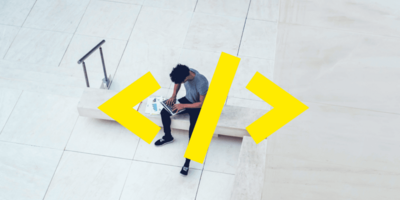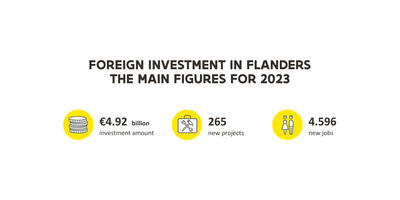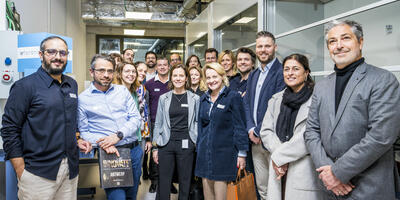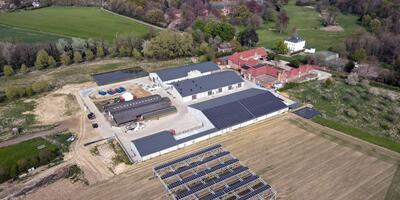
New circular & biomedical research center opens in Flanders
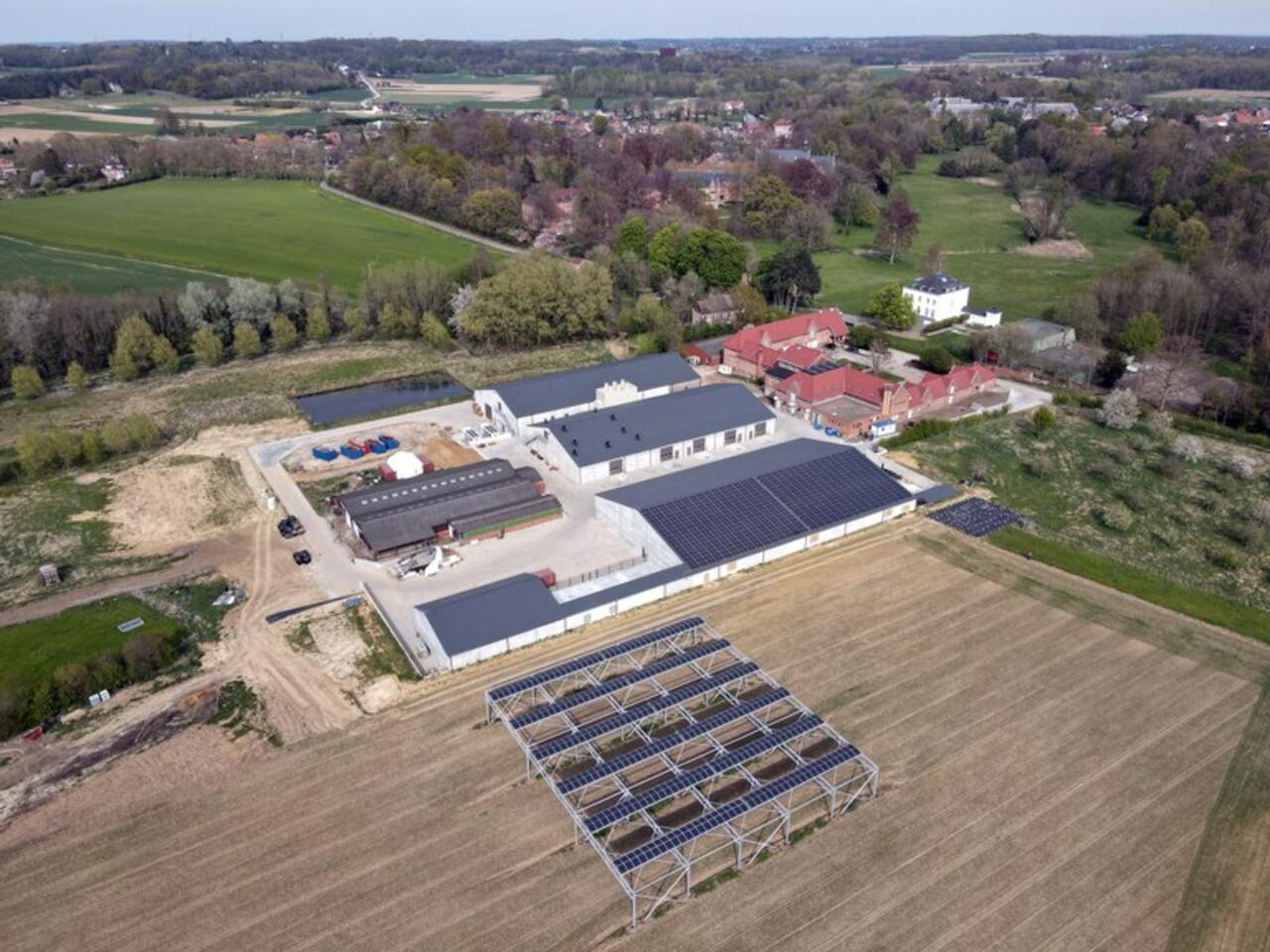
Bioeconomy and biomedical research
TRANSfarm mainly focuses on sustainable, circular innovations for the bioeconomy as well as on biomedical research. For this purpose, several new stables were built on the nearly 100-year-old site where research with laboratory animals can take place under controlled lab conditions. Among other things, new animal feeds are being tested based on proteins from local crops or industrial by-products.
The research center will also investigate ways to make agriculture less dependent on fossil-based raw materials. A test is underway with solar panels placed on a metal structure above a field, examining the impact of sunlight and rainfall on the harvest. The Leuven University (KU Leuven) scientists seek to answer the question of whether farmers can generate green energy without jeopardizing the quality and yield of their crops.
TRANSfarm is conceived as a service company within Leuven University. We help researchers answer questions and scale up solutions.
Pilot production of unique hydrogen panels
What’s more, KU Leuven spin-off Solhyd will start the pilot production of its unique hydrogen panels at TRANSfarm. These panels allow hydrogen to be extracted from water vapor in the air using only solar energy. The Solhyd project, which has been nominated for the European Inventor Award by the European Patent Office (EPO), features modular hydrogen panels that can be used in both large and small set-ups. Solhyd hopes to bring its hydrogen panels to the market in four to five years.
The hydrogen produced by the panels is under low pressure and can be easily injected into the gas grid. The energy efficiency is close to that of traditional solar panels. We are currently talking to potential investors. The idea is to place half of the capital in a non-profit, which can monitor the invention's sustainable impact.
New vaccine developments
In addition, well-known virologist Johan Neyts from KU Leuven’s Rega Institute for Medical Research is also a “customer” at TRANSfarm. His team of researchers are testing animal and human vaccines there. “At TRANSfarm, we can organize larger experimental set-ups to test a vaccine in various doses, for example,” says Neyts. “In our labs at the Gasthuisberg university hospital, there’s not enough room for that.”
Specifically, Neyts’ team is working on techniques to produce vaccines on an industrial scale and make them easier to store. Neyts: “Today, for example, the commercial yellow fever vaccine is still cultivated in chicken eggs and must be kept cool. At a temperature of 50 degrees Celsius, it becomes unusable after just 20 minutes. However, we have developed a variant of the vaccine that remains usable for no fewer than two weeks when stored at the same temperature.”
Part of Flanders’ life sciences & health ecosystem
TRANSfarm is just one of the numerous organizations and companies in Flanders’ innovation-driven ecosystem for life sciences & health. Want to unravel this ecosystem in a virtual yet interactive way? Head to the Flanders360 platform and discover hundreds of successful companies, universities, R&D centers, incubators and other life sciences & health industry players in Flanders.
Alternatively, check out our industry overview to learn more about the available tax, legal and other incentives for establishing your life sciences & health hub in Flanders.
